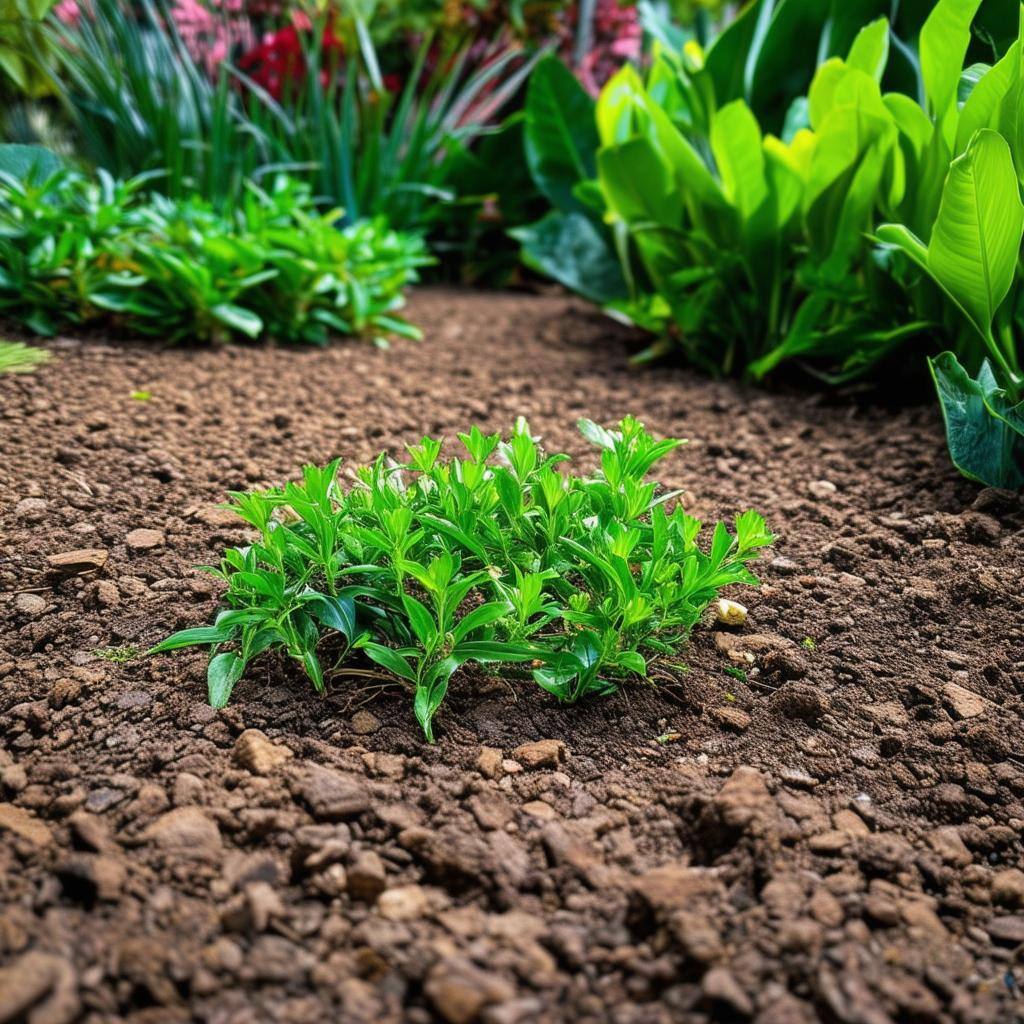Harnessing Nature: The Role of Beneficial Microbes in SEQ Gardens
Gardening is not merely about tending to plants; it's about nurturing the unseen life beneath the surface. In South East Queensland, a region blessed with rich biodiversity, understanding and harnessing beneficial microbes can transform gardens into thriving ecosystems.
The Invisible Gardeners Beneath Our Feet
Beneath every flourishing garden lies a bustling community of microorganisms—bacteria, fungi, and archaea—that work synergistically to promote plant health. These microscopic entities decompose organic matter, cycle nutrients, and form protective alliances with plant roots, creating a resilient and self-sustaining environment.
Understanding the Garden Microbiome
The Diversity of Soil Microorganisms
Soil is a complex habitat teeming with life. Billions of bacteria, fungi, protozoa, and nematodes inhabit a single gram of soil, each playing distinct roles in maintaining soil fertility and plant vitality. This diversity ensures a balanced ecosystem capable of supporting robust plant growth.
Symbiotic Relationships Between Plants and Microbes
Plants and microbes engage in intricate symbiotic relationships. For instance, certain bacteria fix atmospheric nitrogen into forms plants can absorb, while mycorrhizal fungi extend the root system's reach, enhancing water and nutrient uptake. These partnerships are fundamental to plant health and productivity.
Key Beneficial Microbes in South East Queensland
Nitrogen-Fixing Bacteria: Nature's Fertilizers
Genera such as Rhizobium and Azotobacter convert atmospheric nitrogen into ammonia, enriching the soil with essential nutrients. This natural fertilization process reduces the need for chemical fertilizers, promoting sustainable gardening practices.
Mycorrhizal Fungi: The Plant's Underground Allies
Mycorrhizal fungi form extensive networks that connect plant roots, facilitating the exchange of nutrients and enhancing drought resistance. In South East Queensland's variable climate, these fungi are invaluable for maintaining plant health.
Phosphate-Solubilizing Bacteria: Unlocking Essential Nutrients
Phosphorus is vital for plant development, yet often remains locked in insoluble forms within the soil. Phosphate-solubilizing bacteria release organic acids that convert these compounds into accessible nutrients, ensuring plants receive adequate phosphorus for growth.
Enhancing Beneficial Microbial Activity in Your Garden
Organic Matter: The Foundation of Soil Health
Incorporating organic matter such as compost and green manure enriches the soil, providing sustenance for microbial communities. This practice fosters a fertile environment conducive to plant growth.
Composting: Recycling Green Waste into Black Gold
Composting transforms garden waste into nutrient-rich humus, bolstering soil structure and microbial diversity. In Bundaberg, innovative composting systems convert green waste into valuable compost, exemplifying sustainable practices.
Mulching: Protecting and Nourishing the Soil
Applying mulch conserves soil moisture, regulates temperature, and suppresses weeds. Moreover, as mulch decomposes, it feeds soil microbes, enhancing overall soil health. In South East Queensland, mulching is particularly beneficial for maintaining garden vitality.
Practices to Support a Thriving Soil Microbiome
Avoiding Chemical Interference
Excessive use of pesticides and fungicides can disrupt beneficial microbial populations. Opting for organic pest control methods preserves the delicate balance of the soil microbiome, ensuring beneficial microbes thrive.
Implementing Crop Rotation and Plant Diversity
Diverse plantings and crop rotation prevent the buildup of soil-borne pathogens and promote a varied microbial community. This diversity enhances disease resistance and soil fertility.
Utilizing Microbial Inoculants
Introducing specific beneficial microbes through inoculants can bolster soil health. For example, arbuscular mycorrhizal fungi inoculants improve nutrient uptake and plant resilience, offering a natural alternative to chemical fertilizers.
Disease Suppression: Nature's Defense Mechanism
Beneficial microbes act as vigilant guardians in the soil, suppressing plant diseases through various mechanisms. They compete with pathogens for nutrients and space, produce antimicrobial compounds, and induce systemic resistance in plants, thereby reducing the incidence of diseases.
Enhanced Nutrient Uptake and Plant Growth
The symbiotic relationships between plants and beneficial microbes significantly enhance nutrient acquisition. For instance, mycorrhizal fungi extend the root system's reach, facilitating access to water and nutrients, while nitrogen-fixing bacteria convert atmospheric nitrogen into forms usable by plants. These interactions lead to improved plant growth and increased yields.
Conclusion: Cultivating a Symbiotic Garden Ecosystem
Embracing the power of beneficial microbes transforms South East Queensland gardens into resilient and productive ecosystems. By fostering a diverse and active soil microbiome, gardeners can reduce reliance on chemical inputs, enhance plant health, and contribute to environmental sustainability. Nurturing these invisible allies is a step toward a harmonious and thriving garden.




